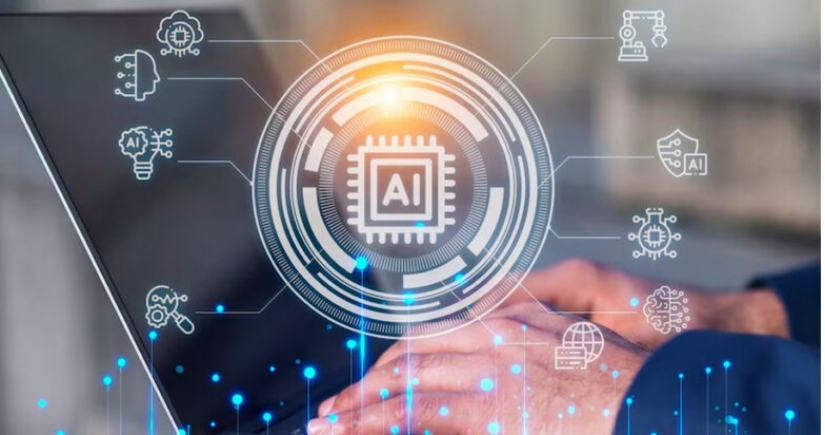
The International Labour Organization predicts that artificial intelligence will have an impact on 35% of employment in Mexico, with 2.3% of jobs potentially being replaced by full automation. And the introduction of AI may also create new job opportunities, improve productivity, and change the overall face of the job market, but there are also potential risks.
According to the latest research, generative AI like ChatGPT is expected to fully automate 2.3% of jobs in Mexico. Although this change may lead to the disappearance of some job positions, the report points out that artificial intelligence is expected to create more new jobs, thereby having a significant impact on the labor market and bringing new hope to job seekers. The application of generative AI in the business sector is expected to increase productivity in existing positions by 14%. UN agencies point out that this potential productivity boost is a positive aspect of AI's impact on the job market. However, the specific impact of artificial intelligence on 18% of jobs is still uncertain and requires further research and analysis.
From a regional perspective, it is expected that 26% to 38% of positions will be affected by generative artificial intelligence. Among these affected positions, about 14% of jobs may experience increased productivity due to technological advancements, but only 5% of jobs are at risk of full automation. The International Labour Organization emphasizes that the benefits brought by artificial intelligence are fair in terms of gender and age. Formal jobs in urban areas are more susceptible to technological changes and are typically held by workers with higher incomes and education levels. The report points out that workers in positions such as salespeople, architects, educators, and personal service providers are more likely to benefit from the changes brought about by generative AI.
However, the International Labour Organization also warns that the digital divide may limit the potential of artificial intelligence in improving labor productivity. It is estimated that 17 million Latin American workers may not be able to improve productivity through AI technology, accounting for nearly 50% of the total number of employees in Latin America and the Caribbean. William Maloney, Chief Economist for Latin America and the Caribbean at the World Bank, explained, "In regions with slow economic growth, severe inequality, and one-quarter of households still living in poverty, improving productivity and employment quality is crucial. Digital technology, including artificial intelligence, can provide new solutions to these problems, and countries must increase investment in improving connectivity and skills
To address these challenges, the International Labour Organization has put forward several recommendations to narrow the gap between fair adoption of artificial intelligence and improving worker performance. These recommendations include implementing public policies to ensure the effective operation of digital infrastructure, reviewing social security systems to ensure that everyone can benefit from technological transformation, and encouraging companies and governments to develop lifelong learning plans to help employees develop and strengthen technology related skills.
Although artificial intelligence has the potential to significantly improve efficiency and productivity, bringing significant benefits to businesses and employees, it also comes with risks such as job loss and increasing inequality. The International Labour Organization's report emphasizes that balancing risk management is crucial in a rapidly changing technological environment. Although AI technology can improve productivity in many professions, it may also threaten employment security in some positions. To ensure the widespread dissemination of the benefits of artificial intelligence, targeted policies and interventions are needed to meet the specific needs of various industries and worker groups.
Overall, artificial intelligence will bring profound changes to Mexico's job market, not only creating new opportunities but also enhancing productivity. However, at the same time, there are uncertainties and potential risks involved in this process. Developing appropriate policies and measures will be key to ensuring that these changes bring positive effects.

According to Bloomberg, a recent in-depth interview with Michael Dehal, senior portfolio manager at Raymond James' Dehal Investment Partnership, was released, focusing on the economic development prospects and potential risks of Canada and the United States in 2026.
According to Bloomberg, a recent in-depth interview with Mi…
TikTok Shop, the global e-commerce platform under ByteDance…
As a severe flu outbreak sweeps across the United States, w…
Recently, US Treasury Secretary Mnuchin publicly stated tha…
At the dawn of 2026, the United States launched a military …
From the stiff step when it first debuted in 2022 to demons…